The Wolf, the Hawk and the Avant-garde Musician: Interview with Andrew Powell
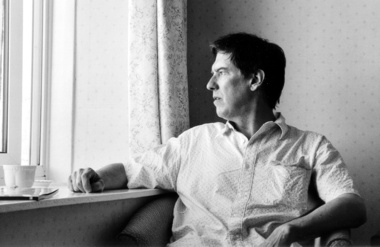
Originally published on Colonne Sonore - Immagini tra le Note N.10 - January/February 2005
Twenty years after Ladyhawke’s release, British composer Andrew Powell remembers his scoring experience on Richard Donner’s medieval-fantasy starring Rutger Hauer and Michelle Pfeiffer. Professional satisfactions and critics’ misunderstanding generated by a still discussed score.Colonne Sonore: Mr. Powell, which point of Ladyhawke’s production were you contacted at? Did you visit the Italian locations?
Andrew Powell: I was first contacted when Dick Donner was already back in Los Angeles starting to edit the film, so, no, unfortunately, I didn't visit any of the locations.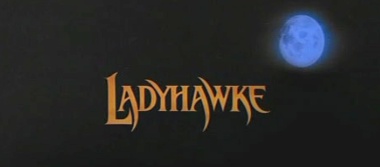 CS: Richard Donner reportedly said that Alan Parsons Project’s music was already in his mind during the film pre-production. Did this led to particular references or precise requests about your previous orchestral works with the group, like the cue “Fall of the House of the Usher” from Parsons’ first album?
CS: Richard Donner reportedly said that Alan Parsons Project’s music was already in his mind during the film pre-production. Did this led to particular references or precise requests about your previous orchestral works with the group, like the cue “Fall of the House of the Usher” from Parsons’ first album?
AP: Dick never asked me to copy anything from the old APP albums - we did discuss which cues should use the group and which should just be orchestral, but he never suggested that any cues should be in the style of any particular old tracks.
CS: What kind of working relationship did you had with Donner?
AP: A very good and enjoyable one: Dick is a very funny, almost larger-than-life man, who has great infectious enthusiasm for what he's doing - the scoring and dubbing process (I was involved through the dubbing sessions as well) were great fun. We got on very well throughout the whole movie - in fact we still do!
CS: Along with Donner’s inspired directing, Storaro’s stunning photography and the fundamental yield of Hauer’s, Pfeiffer’s and Matthew Broderick’s performances, can you remember a particular reason of inspiration that boosted you in composing the score?
AP: The first section of the film which Dick showed me when I went to Los Angeles to discuss the score with him was reel 2 - where the riders come out of the castle and Phillippe is in the river - I was immediately impressed with how beautiful it looked - Storaro is a master! There were, as you say, some great performances: I also liked Leo McKern as the mad monk; and the fact that it was a good story also helped.
CS: Because of the particular nature of the score - orchestra mixed with synth and rock idioms - were you asked by the production to prepare any mock-up examples?
AP: No: I did play some sections to Dick in the studio at Abbey Road on the piano. He put a lot of faith in me, and left me to get on with writing.
CS: Despite your previous experiences in film scoring - as “ghost writer” and orchestrator - Ladyhawke was your first autonomous break in the field, and you remarkably approached the project orchestrating and conducting by yourself. Any problem of time scheduling, maybe resulting in a typical status of “under pressure”?
AP: There was certainly time pressure involved in writing the score - I think there always is! - but I have always regarded orchestration as an integral part of composition: I cannot imagine handing a piece of music which I have composed to someone else to orchestrate it. I also always prefer to conduct what I've written whenever possible. There were time problems: I had about 6 weeks to write and orchestrate about 75 minutes of music.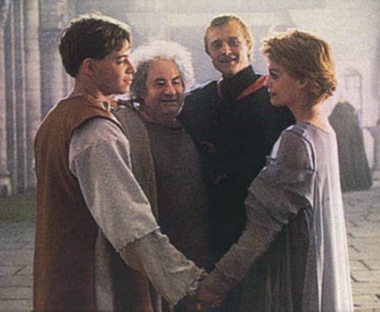 CS: The score presents a wonderful and strong thematic architecture. Can you remember the development of the themes form the first screening of the movie to the score’s final draft ? There were any materials that ultimately didn’t make it into the final cut of the picture?
CS: The score presents a wonderful and strong thematic architecture. Can you remember the development of the themes form the first screening of the movie to the score’s final draft ? There were any materials that ultimately didn’t make it into the final cut of the picture?
AP: Thank you for the compliment! As far as I remember, Isabeau's theme was the first to be written, then the opening string chords form the Opening Titles (the sun and moon music), then the lovers' theme (which starts the End Titles) - Phillipe's music and the "rock" riding music came later. I always like to have the main themes in place before I start working on individual cues.
During the scoring sessions Dick only rejected one "cue" out of the 52 which I had written (because he thought the scene worked better without music - I agreed) - I don't think there was very much which didn't appear in the film, apart from the original turret chase music, which is on the record. There were one or two pieces which had to be re-written after the final edit of the film, because the timings and tempo of some scenes had changed, and some sections of film had disappeared completely.
CS: The score clearly shows a great personality; nevertheless, did you referred to any past or contemporary film-composers?
AP: Obviously every composer is influenced to some extent by a lot of the music which he hears, and I have always liked Korgold's scores, and Bernard Herrmann's and some of Jerry Goldsmith's, but I'm not sure whether there were any really direct influences here: Mahler, Richard Strauss and Stravinsky may have had more direct influence on the orchestral music.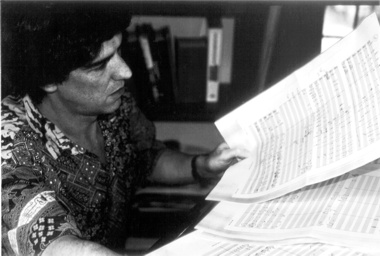 CS: What part of the movie created you more difficulties during the scoring?
CS: What part of the movie created you more difficulties during the scoring?
AP: I think probably the two scenes in the woods, with Pitou and Cezar. This may have been partly because this sort of orchestration takes a long time - in places there are 24 or 26 individual violin parts.
CS: In those scene, despite the score’s vivid melodical installation, you deserved some room to dissonant and atonal writings: is it correct to say that your orchestral avant-garde training with Stockhausen and Boulez reemerged?
AP: Yes, definitely. I also studied with Ligeti - who influenced the approach in some of this music.
CS: During the recording sessions, did the performing particularity cause any problem to the orchestra and to the Alan Parsons Project members (more rehearsal, difficulties with click synchronizations)?
AP: Not really: both the players in the Parsons band and the Philharmonia Orchestra were very used to working with click tracks. Besides, the two were recorded separately.
CS: After the release of Ladyhawke your music has been object of various criticisms, most of all concerning the anachronistic use of rock blend in a medieval tale. But time makes justice and today is clear enough how the movie is significantly characterized by your music. Any considerations?
AP: I remember hearing this criticism shortly after the release of Ladyhawke when I was doing an interview in Los Angeles for either the Hollywood Reporter or Variety: I had to ask the interviewer how a composer was supposed to make the members of an audience jump out of their seats using two recorders and a lute? I think the word "anachronistic" is mis-used here, as what most people who criticise the score on this way seem to mean is that I should have written a "Korngold" style score - which would also be several centuries out of period. In fact, I believe that less than 15% of the score uses the rock group, the rest is purely orchestral or choral ( I wrote some 15 minutes of "Gregorian" chant for the male choir) or, in some scenes, does actually use recorders and lute.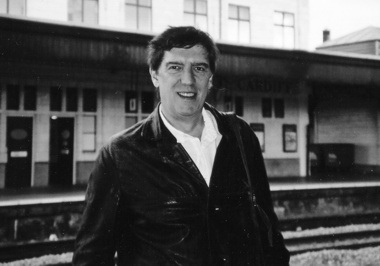 CS: Apart from another movie in 1988 (Rocket Gibraltar) and some sporadic works for television, your name disappeared form the scoring medium in the nineties, although your score for Ladyhawke is still shiny remembered and appreciated - the “Gramophone Film Music Good CD Guide” enlist your name in “P” section even if with one solely review (Ladyhawke). So no doubt about your contribution to the medium, but which reasons contributed to your long absence from movie-making?
CS: Apart from another movie in 1988 (Rocket Gibraltar) and some sporadic works for television, your name disappeared form the scoring medium in the nineties, although your score for Ladyhawke is still shiny remembered and appreciated - the “Gramophone Film Music Good CD Guide” enlist your name in “P” section even if with one solely review (Ladyhawke). So no doubt about your contribution to the medium, but which reasons contributed to your long absence from movie-making?
AP: I have been approached since then to work on films, both in Los Angeles and in London, but each time this happened I was already working on something else - an Alan Parsons or Al Stewart album, or recordings with the Berlin Philharmonic, or writing a concerto for an Arts Council commission - and so couldn't fit in with the film's schedule. For the past few years I have been concentrating mainly on writing and recording "concert" music, and also working with some exciting new Belgian groups, such as Laïs and Yevgueni. I have always worked in several different areas of music, as a composer,arranger, conductor and player, and have for the most part tried to avoid being tied down in any one area.
CS: What do you think about the current film music’s situation? What about the actual, predominant abandon of melody in favor of rhythm and timbrical color?
AP: I don't have a problem with composers using the latest technology - I was working on live electronic music with Stockhausen in the 1960s - and still occasionally write, and perform and record, in this field, but I do feel, as you apparently do from your question, that the move away from melody in film scoring leaves a gap which no amount of clever use of technology can fill - but perhaps this is partly a result of the movement away from story-lines and towards films filled with visual special effects instead? Despite this, whenever a big romantic moment is called for someone will still come up with a "Titanic" song - which seems to attract people more than all of the special visual and musical effects.
CS: Finally, approaching its twentieth anniversary, what is your general recollection of the whole Ladyhawke experience and your personal statement about the movie?
AP: This was, as you said earlier, my first film which I had been asked to score, and it was an experience which I really enjoyed. It was great to work with Dick Donner and Stuart Baird (the editor, who was also a very entertaining character) - I learned a lot from both of them. I had written occasional "cues" for films before: my friend the late Stanley Myers asked me to produce the soundtrack sessions for several films ("Janice" - Joseph Strick, "The Apprenticeship of Duddy Kravitz" - Ted Kotcheff and an Alistair MacLean movie "Caravan to Vaccares" are some which I can remember) and each time also asked me to write a cue or two: He was a very good film composer, and I learned a great deal from him about how to structure and pace a score.
As I said earlier, scoring the film involved a lot of hard work in a short period of time, but Dick has the fortunate ability to make hard work enjoyable: my main recollection is of having a lot of fun! I still think it's a very good film, with some outstanding acting performances, well directed and beautifully photographed: it's also a very good story. Time for a sequel, Dick?
Thanks to AlanParsonsMusic.com, Debby van den Berg at MCPS-PRS Alliance and of course to Mr. Powell for his disposability and courtesy.
© 2005-2006 Colonne Sonore - Immagini tra le note